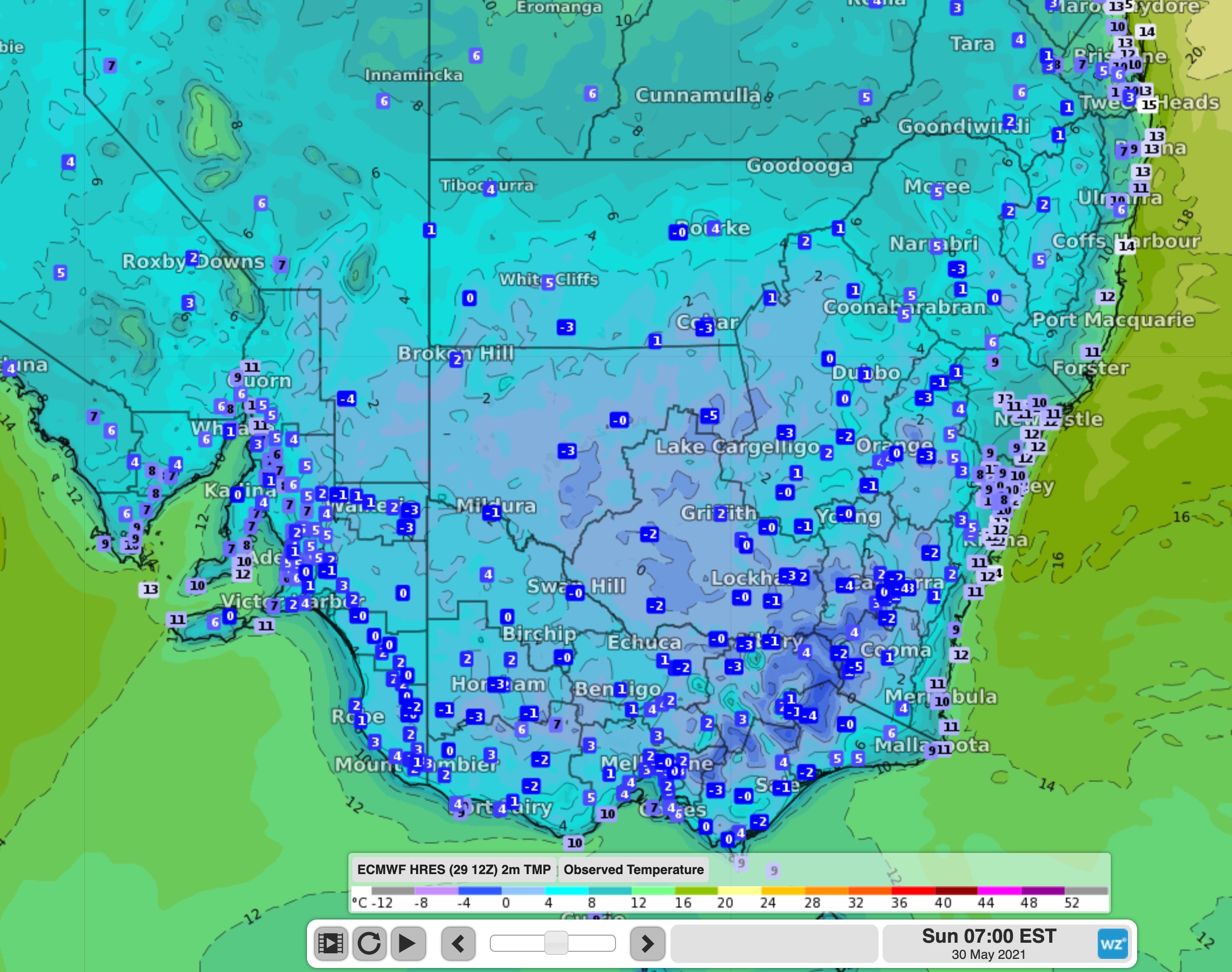Record-breaking freeze in the southeast
It has been the coldest May morning in more than half a century as widespread frost and sub-zero temperatures grip southeastern Australia.
Melbourne shivered through its coldest May morning in 72 years on Sunday, reaching a frost-inducing 1.7°C. It was also its coldest morning in 3 years and coldest outside of winter since 1970.
Records tumbled in Horsham as the mercury fell to a mind-numbing -4.3°C, its coldest May morning in 64 years of records. It was also the coldest May morning on record for Yarram (-3.3°C) and Kanagulk (-4.0°C), although these observation sites have only been around for 13 and 17 years respectively.
Temperatures also plummeted outside of Victoria, with Adelaide having its equal coldest May morning in 15 years, dropping to 3.5°C. However, if only considering the current West Terrace site (that was offline from 1979 to 2016), it was the coldest May morning in 101 years. Adelaide Airport was even colder despite being near the coast, reaching 2.2°C, its coldest May morning in 36 years.
Even locations a long distance away from the mainland felt the chill. Norfolk Island fell to a seemingly mild 12.5°C, but this was its coldest May morning in 42 years.
Dozens of locations throughout Victoria, eastern parts of South Australia, and southern New South Wales, had their coldest May morning in at least 15 years, and falling between 6 and 12 degrees below average for this time of year.

Image: Observed temperatures over the southeast on Sunday morning.
This big freeze was caused by a broad high pressure system that cleared skies and turned winds offshore. This pattern allows for the ground to cool rapidly overnight and brings this cold air to the coasts, where proximity to warmer waters often moderate overnight temperatures.
With the high pressure lingering for a few days, temperatures not seen in May in decades will likely greet the end of autumn on Monday, and continuing through the early week.